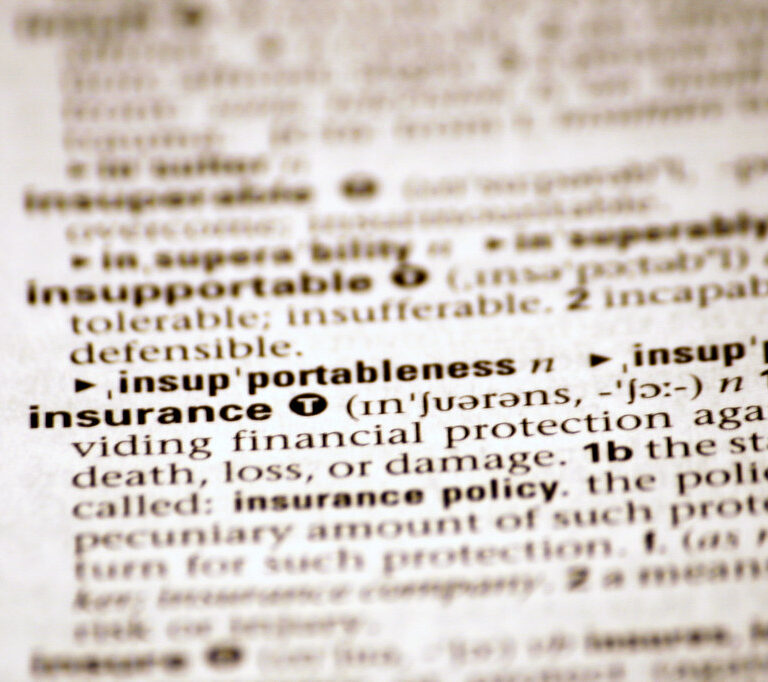Types of insurance policies (life, health, property, auto, etc.)
Discover the different types of insurance policies and their benefits. Learn how to protect yourself and your loved ones with the right coverage.
Introduction
Insurance policies may seem like a drag, but they are an essential part of modern life. Life, health, property, auto insurance – these policies protect us in the event of unforeseen accidents and tragedies.
Understandably, insurance isn’t exactly the most exciting topic in the world. But it’s important to understand what types of insurance exist and what those policies cover.
Explanation of Insurance Policies
An insurance policy is a legal agreement between an individual and an insurance company. The individual pays premiums on a regular basis (monthly or annually) in exchange for protection against specific risks such as illness, injury or damage to property. Different types of policies provide different levels of coverage.
For example, auto liability coverage protects you if you’re at fault for an accident that causes injury or damage to someone else’s property. Collision coverage goes further by paying for repairs to your own car regardless of who was at fault in the accident.
Importance of Having Insurance
Insurance can be expensive but consider the alternative: going bankrupt over a medical bill or losing everything you own because your home was damaged in a natural disaster. By having insurance policies in place, you can rest assured that if something bad happens – whether it’s illness, injury or damage to property – you will have some financial protection.
If you don’t have any type of insurance policy right now, take some time to consider what could go wrong without it. It might be scary but facing potential risks head-on will help you make informed decisions about what type(s)of coverage are best for your individual needs.
In summation: understanding how different types of insurance policies work is crucial for ensuring that we have enough protection when bad things happen; however unpleasant that topic may be! Next up, we’ll take a closer look at life insurance policies and how they work.
The Importance of Life Insurance
Life insurance is a type of policy that provides financial support to beneficiaries upon the death of the policyholder. The purpose of life insurance is to ensure that loved ones are provided for after the passing of the policyholder. It can also be used as an estate planning tool, ensuring that heirs receive their inheritance in a tax-efficient manner.
Types of Life Insurance Policies
There are three main types of life insurance policies: term, whole, and universal. Term life insurance is the simplest and most affordable type. It provides coverage for a specific period (e.g. 10 years) and pays out a death benefit if the policyholder dies during that time frame.
Whole life insurance, on the other hand, covers the policyholder for their entire lifetime and includes an investment component. Universal life insurance combines elements from both term and whole policies.
The Benefits of Having Life Insurance
Having life insurance can provide peace of mind knowing that loved ones will be taken care of financially after one’s passing. It can also help cover final expenses such as funeral costs or outstanding debts like mortgages or car loans.
For families with children or other dependents, life insurance can ensure that their education and daily needs are covered even in the absence of the primary breadwinner’s income. Additionally, some types of policies offer tax advantages or cash value accumulation over time.
While no one likes to think about their own mortality, having life insurance can provide financial security for those left behind in case something unexpected happens. Understanding different types of policies available ensures one selects coverage that best fits their individual needs to protect themselves and those they love most against any possible loss should unforeseen circumstances occur.
Health Insurance Policies
The Definition and Purpose of Health Insurance
Health insurance is a type of insurance that helps you cover the costs related to medical expenses. It can help pay for doctor visits, surgeries, hospital stays, medications, and more. The purpose of health insurance is to offer financial protection against the high costs of medical care.
In the United States, health care is expensive, and without insurance, a medical emergency or an unexpected illness can have devastating financial consequences. Health insurance offers peace of mind knowing that you won’t have to bear the full cost of healthcare if something happens.
Types of Health Insurance Policies (HMO, PPO, POS)
There are several types of health insurance policies available in the market today. The three most common types are HMOs (health maintenance organizations), PPOs (preferred provider organizations), and POS plans (point-of-service plans). HMOs are known for their lower out-of-pocket expenses but also come with stricter rules regarding which healthcare providers you can see.
On the other hand, PPOs allow greater flexibility when it comes to choosing health care providers but tend to come with higher out-of-pocket expenses. POS plans combine features from HMOs and PPOs by allowing patients to choose between in-network and out-of-network providers but at different levels of cost-sharing.
It’s essential to choose a plan that works best for your individual needs and budget. Take some time to review each option carefully before making a decision.
The Benefits of Having Health Insurance
The benefits of having health insurance go beyond mere financial protection. With appropriate coverage in place, you have access to preventive care services such as regular checkups and screenings which allow for early detection and treatment if necessary. Additionally, having health coverage allows you access to better quality healthcare services which would otherwise be too expensive to afford.
Good quality healthcare is essential to maintaining good health and wellness, and having insurance coverage makes it possible. Health insurance can provide peace of mind and reduce stress levels.
With insurance coverage in place, you know that you will be adequately taken care of should a medical emergency arise. You won’t have to worry about being overwhelmed by medical bills or debt resulting from medical expenses.
Protecting Your Physical Assets: Property Insurance Policies
Definition and Purpose of Property Insurance
Property insurance policies are designed to protect your physical assets against damage or loss resulting from unexpected events. These policies provide coverage for a wide range of property types, including homes, rental properties, and personal belongings. Additionally, property insurance policies come in different types depending on the risks you want to cover.
The main purpose of having property insurance is to protect your investment in physical assets against unforeseen events such as theft, natural disasters, fire or other problems that could cause you financial loss. By having the right kind of insurance coverage in place means that you can be prepared for any eventuality and have peace of mind knowing that you are financially protected.
Types of Property Insurance Policies
There are three main types of property insurance policies available: homeowners’ insurance, renters’ insurance and flood insurance. Homeowners’ insurance is designed to cover damage or loss to your home itself as well as its contents. Renters’ insurance provides protection for renters who do not own the building they live in but have personal items they want to protect from loss due to unforeseen events like theft or fire.
Flood insurance is specifically designed to provide coverage against water damage due to floods which may not be covered by a normal homeowner’s policy. When choosing a policy type it is important that you take into consideration all potential risks associated with your specific location and situation so that you have adequate protection.
Benefits of Having Property Insurance
Having property insurance can give you financial security and peace-of-mind because it helps cover the costs related to property damage or destruction caused by unexpected events. It also covers liability claims if someone gets injured on your property while it has been insured. Property owners can also save money on repairs if their policy covers these expenses; this type of support can be crucial if you live in an area that is prone to natural disasters like hurricanes or earthquakes.
In addition, having property insurance helps ensure that you do not have to pay for costly repairs out of pocket. By investing in the right type of coverage, you can minimize your risk and protect your personal assets from financial loss.
Auto Insurance Policies
Definition and Purpose of Auto Insurance
Auto insurance is a type of insurance that provides financial protection against damage or loss caused by traffic accidents. This type of insurance can cover a wide range of damages, including personal injury, property damage, and liability. The purpose of auto insurance is to protect drivers from having to pay out-of-pocket expenses resulting from an accident.
Auto accidents can be expensive, and without the right coverage, drivers may need to pay for repairs or medical bills on their own. Auto insurance helps drivers mitigate the risk associated with car crashes.
Types of Auto Insurance Policies (Liability, Collision, Comprehensive)
There are three main types of auto insurance policies: liability insurance, collision insurance, and comprehensive coverage. Liability Insurance: liability coverage is required in most states and covers damages that you may cause to other people or their property while driving your car. Collision Insurance: collision coverage pays for repairs or replacement if your vehicle is damaged in an accident with another car or object. Comprehensive Coverage: comprehensive coverage covers damage caused by things like thefts, vandalism, fire and natural disasters like floods.
Each state has different minimum requirements for auto insurance so it’s important to check your local regulations before purchasing coverage. It’s also important to note that some lenders may require additional coverage such as gap insurance if you are still paying off a car loan.
Benefits of Having Auto Insurance
Having auto insurance provides peace of mind knowing that you are protected financially in case something happens on the road. It can also help protect against lawsuits if you are at fault in an accident resulting in injuries or property damage. In addition to providing legal protection and financial support if needed; having an auto policy offers several other benefits.
For example, most policies come with roadside assistance and other perks that can help you out if you run into trouble on the road. Moreover, having auto insurance can also lower your overall risk profile, which can result in lower premiums and discounts on other types of insurance.
Overall, having auto insurance is essential for any driver who wants to protect themselves and their vehicle from accidents or unexpected events. With the right coverage in place, you can drive with confidence and peace of mind knowing that you’re covered in case something happens.
Specialty Insurance Policies
Pet Insurance
As pet owners, we all want to provide the best care possible for our furry friends. However, unexpected vet bills can quickly add up and put a strain on our finances. This is where pet insurance comes in handy.
Pet insurance policies work similarly to human health insurance policies and are designed to help cover the cost of veterinary care. There are different types of pet insurance policies available, including accident-only plans, wellness plans, and comprehensive coverage plans that cover accidents, illnesses, and routine care.
When deciding on a pet insurance policy, it’s important to consider factors such as the breed of your pet (certain breeds may be more prone to certain illnesses), pre-existing conditions, premium costs, and coverage limits. Ultimately, having pet insurance can give you peace of mind knowing that you can provide necessary medical treatment for your beloved companion without worrying about the cost.
Travel Insurance
Traveling is an exciting adventure full of new experiences and memories. Unfortunately, sometimes things don’t go as planned – flights get canceled or delayed, luggage gets lost or stolen – which can put a damper on your trip. This is where travel insurance comes in.
Travel insurance policies typically include coverage for trip cancellation or interruption due to unforeseen circumstances such as illness or death of a family member or travel companion; emergency medical expenses while traveling; lost or stolen luggage; and even 24-hour emergency assistance services. When choosing a travel insurance policy, it’s important to carefully review the terms and conditions to ensure that you have adequate coverage for your specific needs.
For example, if you’re planning an adventure-filled trip with activities such as skydiving or bungee jumping, make sure your policy covers those activities. Having travel insurance can give you peace of mind knowing that if something unexpected happens during your trip, you’ll be covered and won’t have to worry about the financial burden of unexpected expenses.
Cyber Insurance
In today’s digital age, cyber insurance has become increasingly important. Cyber insurance policies provide coverage for losses related to cyber attacks, data breaches, and other cyber-related incidents. These policies may include coverage for expenses such as legal fees, crisis management services, and notification costs.
They may also include coverage for business interruption losses resulting from a cyber attack or data breach. When selecting a cyber insurance policy, it’s important to consider factors such as the amount of coverage needed (based on the size of your business and level of risk), the types of incidents covered (e.g., data breaches, hacking), and any exclusions or limitations in the policy.
Having cyber insurance can provide valuable protection for businesses that operate in today’s interconnected digital world. It can help mitigate financial losses resulting from cyber incidents and enable businesses to respond quickly to minimize damage and protect their reputation.
Conclusion: The Importance of Having Insurance
Insurance policies are a necessary part of our lives. They provide financial security and peace of mind when unexpected events happen.
Whether it’s a car accident, a natural disaster, or a health emergency, having insurance can make all the difference in ensuring that you are financially protected. One important benefit of having insurance is that it can help you avoid financial ruin.
For example, if you have car insurance and get into an accident, your policy will cover the cost of repairs or replacement for your vehicle and any damages to other cars or property. Without insurance, you would have to pay these costs out of pocket which can be incredibly expensive and potentially lead to bankruptcy.
Another benefit of insurance is that it helps to protect your assets. If you own a home or other valuable property, having homeowners’ insurance or renters’ insurance can protect against theft, damage from natural disasters such as floods or fires, and other unforeseen circumstances.
Having health insurance is essential in ensuring access to affordable healthcare in case of illness or injury. Medical bills can quickly add up without adequate coverage leading to debt with lasting impact.
Carrying different types of insurances is crucial for protecting yourself from unforeseen events that could result in devastating financial loss. Although paying for premiums may seem like an unnecessary expense initially but not having coverage can prove far more costly in the end due to expenses incurred due to accidents/illnesses/emergency situations which may occur unexpectedly and completely disrupt your life.


